In this "artful, informative, and delightful (book)" ("New York Review of Books"), Diamond offers a convincing explanation of the way the modern world came to be and stunningly dismantles racially based theories of human history. Photos. Copyright © Libri GmbH. All rights reserved.
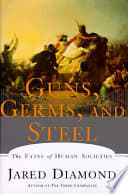
Average Rating
Informations
About the author
Jared M. Diamond
Author
Jared Mason Diamond is an American scientist, historian, and author. In 1985 he received a MacArthur Genius Grant, and he has written hundreds of scientific and popular articles and books. His best known is Guns, Germs, and Steel (1997), which received multiple awards including the 1998 Pulitzer Prize for general nonfiction. In 2005, Diamond was ranked ninth on a poll by Prospect and Foreign Policy of the world's top 100 public intellectuals.
Guns, Germs, and Steel
by Jared M. Diamond
Books Like Guns, Germs, and Steel
If you're looking for books similar to Guns, Germs, and Steel, here are some recommendations based on themes, tone, and narrative style.
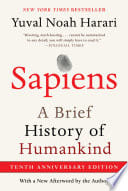
Sapiens: A Brief History of Humankind
Yuval Noah Harari
A sweeping exploration of human history that examines how humans became the dominant species on the planet. Harari analyzes the biological and cultural evolution of humanity, similar to Diamond's approach. The book provides a comprehensive look at how societies developed, technological advances emerged, and humans transformed the world around them.
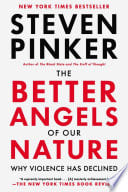
The Better Angels of Our Nature
Steven Pinker
A comprehensive examination of human violence and the long-term decline of conflict. Pinker uses extensive historical data to argue that humanity has become progressively less violent over time. The book provides a broad, data-driven perspective on human social development, similar to Diamond's analytical approach.
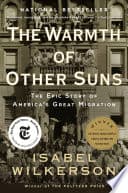
The Warmth of Other Suns
Isabel Wilkerson
A powerful narrative of the Great Migration of African Americans from the rural South to urban centers. Wilkerson explores how geographical, social, and economic factors shape human movement and cultural transformation. The book provides a deeply human perspective on societal change and migration.
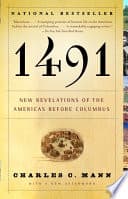
1491: New Revelations of the Americas Before Columbus
Charles C. Mann
A groundbreaking work that challenges traditional narratives about indigenous American societies before European contact. Mann explores complex civilizations, advanced technologies, and sophisticated social structures that existed in the Americas. The book provides deep insights into human development and cultural complexity, echoing Diamond's analytical approach.
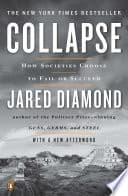
Collapse: How Societies Choose to Fail or Succeed
Jared Diamond
Another seminal work by Diamond that explores how environmental challenges and human decision-making impact societal survival. The book examines various historical societies and their responses to ecological challenges. It provides a complementary perspective to 'Guns, Germs, and Steel' by focusing on societal resilience.
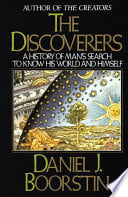
The Discoverers
Daniel J. Boorstin
A comprehensive history of human discovery and scientific advancement. Boorstin explores how curiosity, technology, and cultural contexts drive human progress. The book provides a broad historical perspective on human innovation and societal development.
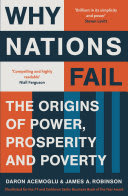
Why Nations Fail
Daron Acemoglu and James A. Robinson
An in-depth analysis of why some nations prosper while others remain impoverished. The authors argue that political and economic institutions are crucial to understanding societal development. Like Diamond, they provide a macro-historical perspective on human societies and their divergent paths of progress.
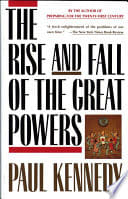
The Rise and Fall of the Great Powers
Paul Kennedy
An analysis of global power dynamics from the 15th century to the present. Kennedy examines how economic, technological, and geographical factors contribute to the rise and decline of nations. The book provides a macro-historical perspective on human societies and their transformations.
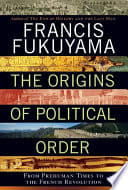
The Origins of Political Order
Francis Fukuyama
A comprehensive examination of how human societies developed political institutions. Fukuyama traces the evolution of political systems from prehistoric times to the modern era. The book provides a broad, analytical perspective on human social development and institutional change.
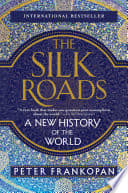
The Silk Roads: A New History of the World
Peter Frankopan
A comprehensive reexamination of world history through the lens of trade and cultural exchange. Frankopan demonstrates how interconnected human societies have been throughout history, similar to Diamond's global perspective. The book explores how geography, technology, and cultural interactions shaped human development across continents.
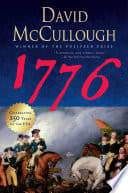
1776
David McCullough
A detailed account of the American Revolution that explores how geographical, technological, and social factors influenced historical outcomes. McCullough provides a nuanced look at how specific circumstances shape major historical events. The book offers insights into how environmental and cultural factors impact human societies.
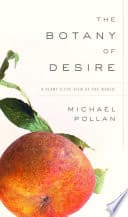
The Botany of Desire
Michael Pollan
An innovative exploration of how plants have co-evolved with human societies. Pollan examines the complex relationships between humans and plants, demonstrating how biological and cultural factors interact. The book offers a unique perspective on human-environment interactions, similar to Diamond's interdisciplinary approach.
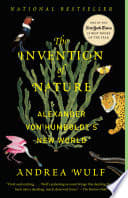
The Invention of Nature
Andrea Wulf
A biography of Alexander von Humboldt that explores how scientific understanding of the natural world evolved. Wulf demonstrates how interconnected ecological and human systems are, reflecting Diamond's holistic approach to understanding human development. The book reveals how scientific observation can transform our understanding of the world.
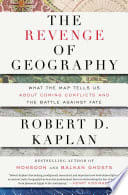
The Revenge of Geography
Robert D. Kaplan
An exploration of how geographical features influence national development and geopolitical strategies. Kaplan demonstrates how physical landscapes shape human societies and international relations. The book provides a geographical perspective on human history similar to Diamond's approach.
No account connected — sign in to comment.
